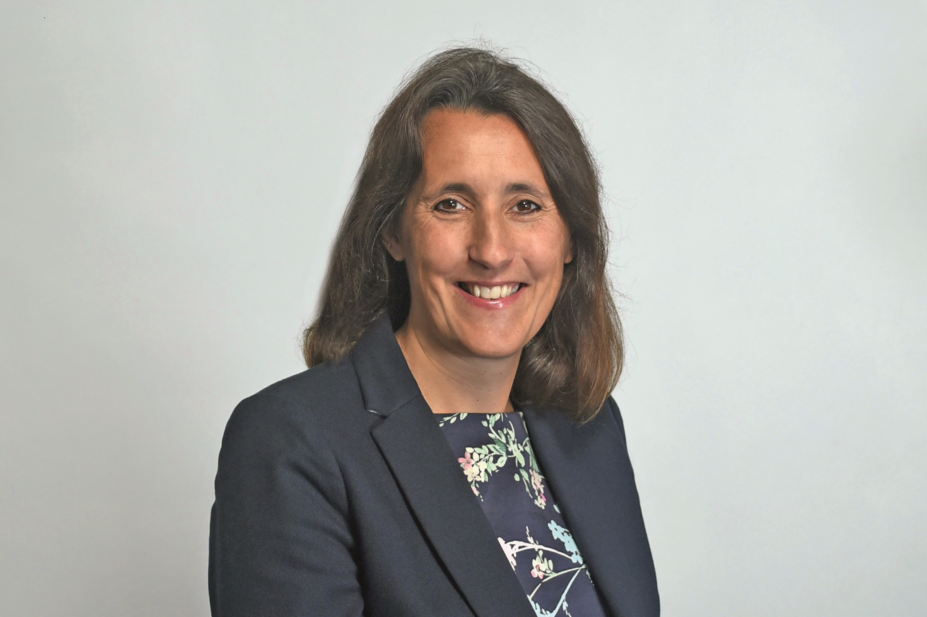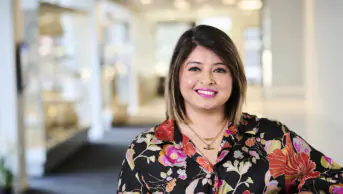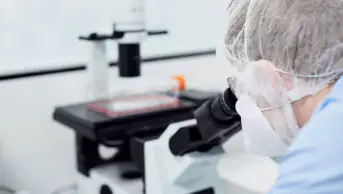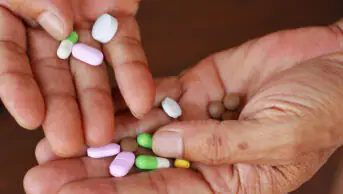
Courtesy of Sarah Cavanagh
Sarah Cavanagh is acting director of East Anglia Regional Medicines Information Service, Ipswich Hospital and advisor to the Commonwealth Pharmacists Association. She has recently been involved in a Tropical Health and Education Trust (THET) programme supporting training of health workers and capacity building in Mozambique.
What is your current role and how did you get here?
My career began in 1993 at Worthing Hospital in West Sussex. During my rotational training I took a three-month career break and volunteered in India at a Kolkata street clinic before my first medicines information (MI) role at East Anglia Regional Medicines Information Service (EAMIS), part of NHS England’s Specialist Pharmacy Service.
In 1997, I worked in Ghana with Voluntary Service Overseas (VSO), an international development charity and returned to an MI role in Bristol in late 1999. I then moved to Addenbrooke’s Hospital, Cambridge, where I undertook a project with a colleague, offering MI to pharmacists in low-income countries. This led to tea with Dame Mary Archer, chair of the hospital board at the time. As a result, Addenbrooke’s Abroad, a programme that supports global health activity was launched in 2007.
Ten years ago I returned to EAMIS as deputy director and from 2017 as acting director. EAMIS operates as an integrated service with Ipswich Hospital MI and I oversee the provision of medication-related clinical advice to patients and healthcare professionals.
What is THET?
THET supports the training of health workers to build a world with affordable, quality healthcare for all. In 2011 the then secretary of state for international development, Andrew Mitchell, launched the Health Partnership Scheme (HPS) with THET as managing agent. Since then, the £30m invested in HPS has trained more than 84,000 health workers in 247 projects through 180 partnerships with NHS organisations and higher education providers. The effectiveness, impact and value for money of this scheme has been rigorously assessed and the government has recently committed to continuing HPS to 2024.
How did the opportunity to go to Mozambique with THET come about?
Ipswich Hospital has long-standing links with Beira in Mozambique and a number of our clinicians have volunteered on a variety of projects. THET invited Ipswich Hospital to apply for funding to build on previous successes in Mozambique. I was keen to learn as much as possible and was put in touch with a pharmacist from Torbay who had worked on medication safety partnership projects in Kenya. We discussed what might be possible.
In 2014, I attended a presentation with visiting Beira colleagues. My eagerness must have been noted, because I was asked by the medical director if I would be interested in joining the partnership team. It was felt a pharmacist would add an additional dimension to the other work streams. I jumped at the chance!
What was your involvement in the project and who did you work with?
The two-year project involved three visits to Mozambique and a reciprocal visit to Ipswich. Training included drug calculations and antimicrobial stewardship using a train-the-trainer approach. Emails and Skype calls enabled ‘lunchtime-volunteering’ and allowed different members of our pharmacy department to contribute without even leaving Suffolk.
Initially, I worked closely with Beira’s pharmacists to identify work that would drive sustainable change and improve patient safety. We looked at reducing medication errors and missed or omitted doses, and I found overlaps with the work I was undertaking in my regional MI role. In the final year I became project lead and acquired budget responsibilities — a challenge because most transactions involve two currency conversions and fluctuating exchange rates post Brexit and the US election.
I worked as part of a multidisciplinary team from Beira and Ipswich, with health psychologists from Manchester University (The Change Exchange) and a volunteer medical student from Brighton and Sussex Medical School. The Ipswich team included doctors, nurses, managers, pharmacists, pharmacy technicians, Portuguese translators and our communications, charity and estates teams. We all brought different skills to the project, and having such a diverse range of professionals added enormously to our ambitions and to the effective delivery of the projects.
The profile and status of the pharmacy team in Beira was raised as hospital managers witnessed the important contribution pharmacists make to patient safety. Hosting Beira’s chief pharmacist in Ipswich enabled him to observe medication safety and optimisation initiatives in our trust. He particularly benefited from time he spent with our clinical services manager/medication safety officer.
What insights did you gain from your time in Mozambique?
Mozambique provided a unique learning opportunity, which benefited me personally and professionally. I’m a more confident, effective communicator and more self aware and outward-looking as a pharmacist. The contributions from other professionals in our team, such as health psychologists, have also enhanced my current regional and national MI work.
I was reminded of why I became a pharmacist and of how we all strive to improve health. Supporting and sharing our skills with colleagues overseas is cost effective and is why the UK government continues to fund the HPS. The NHS has also benefited from this work, injecting new skills, enthusiasm and leadership into volunteers. I am now better and more imaginative at managing change within limited budgets, and much more resilient. These are very useful skills in today’s NHS. Crucially, I see more clearly than ever how lucky we are to have the NHS.
How can pharmacists get involved in programmes such as THET?
If your institution is involved in a health partnership, volunteer. Managers should consider allowing staff to volunteer. It is virtually impossible to meet someone who has worked in a low-income setting who has learned nothing. Health Education England has a ‘Toolkit for the collection of evidence of knowledge and skills gained through participation in an international health project’ and in 2018 they are also launching a portal linking volunteers with placements. The Commonwealth Pharmacists Association is also worth investigating.
Most importantly, be open-minded and adaptable. Volunteering takes time and if you have family commitments, their support is vital. Mine were amazing, even when I rather self-indulgently suggested using some of my annual leave to travel to Mozambique. On balance, we felt the global education my involvement would bring our kids would make up for the complicated logistics of my brief absence. Luckily for me, my husband who had volunteered with me in Ghana 20 years ago ‘got it’.


